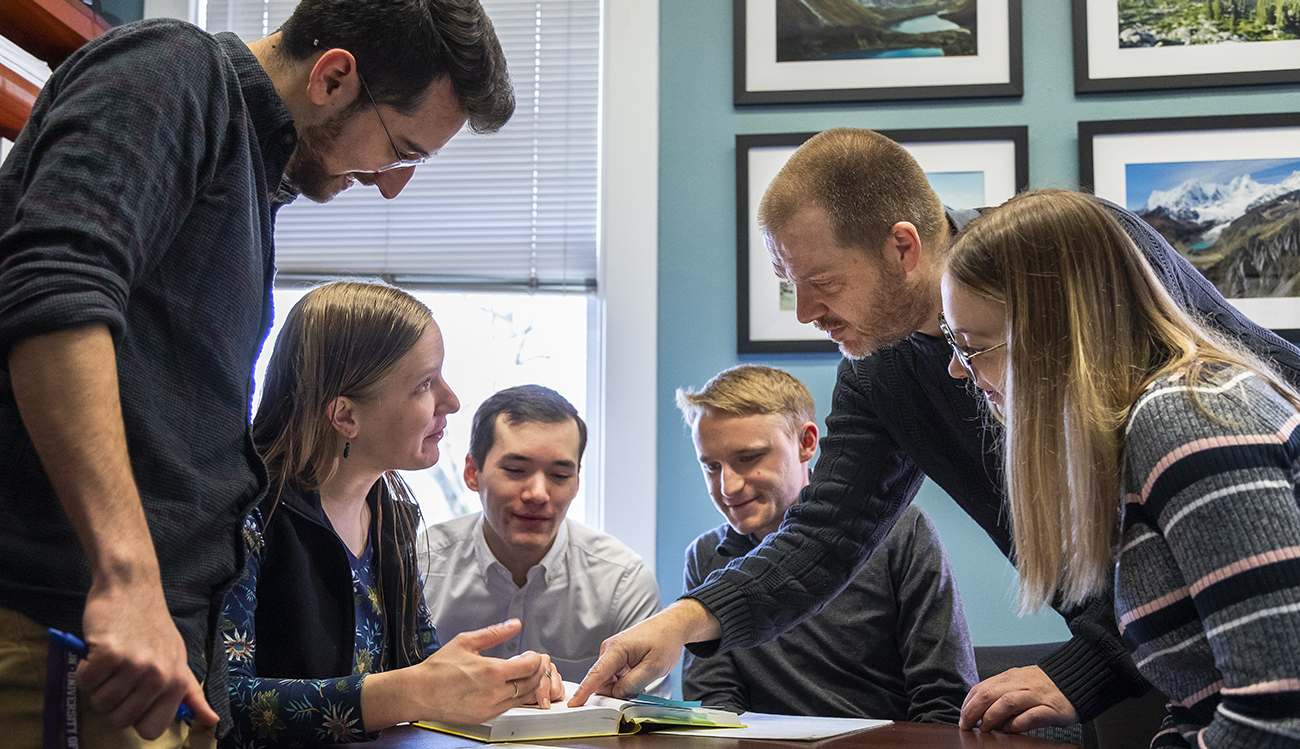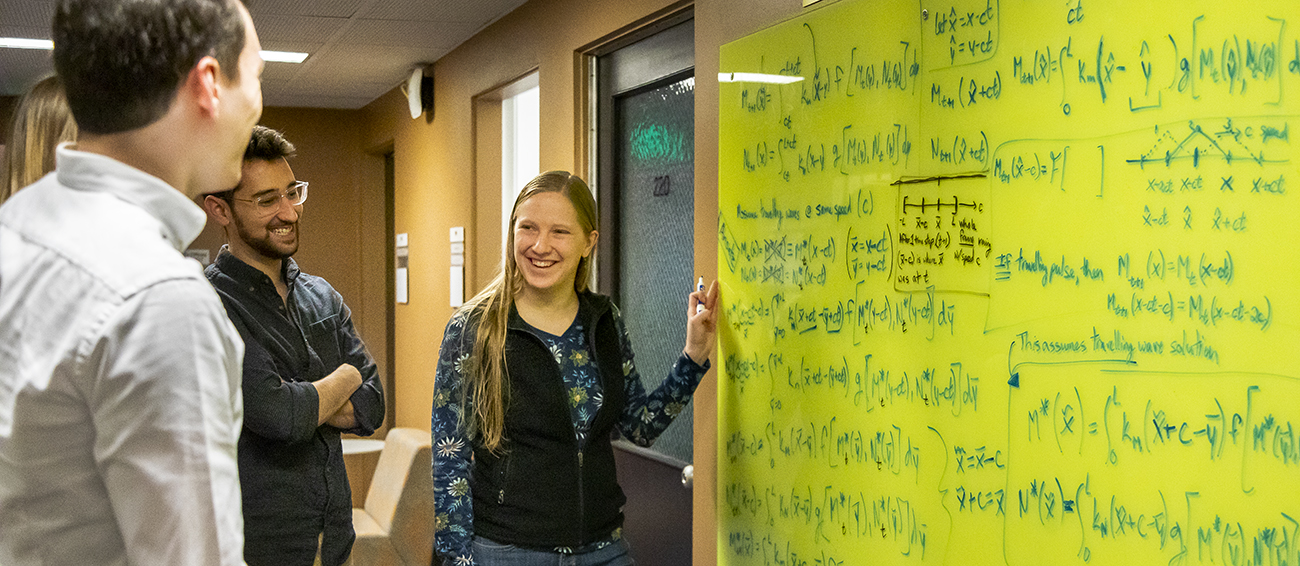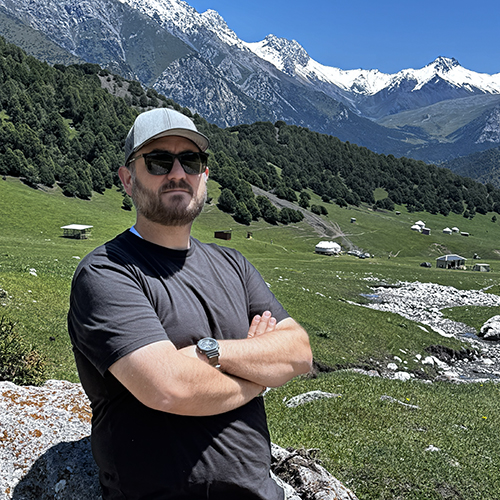
The UW Department of Applied Mathematics, ranked best among its peers (tied with Princeton) by the National Research Council, has offered only graduate degrees—until now. Starting autumn 2020, the department will offer two bachelor’s degree options. Both will focus on quantitative methods, which are relevant to a wide range of fields from finance to engineering to the biological and health sciences.
The two new undergraduate degree programs, applied mathematics and computational science and risk management, have begun accepting students for autumn quarter. The University will continue to offer a bachelor’s degree in applied computation and mathematical sciences (ACMS), offered jointly by the departments of Applied Mathematics, Mathematics, Statistics, and Computer Science.
We’re looking for students who want ...to have an impact and who are going to rely on science to create that impact.
The popularity of the ACMS degree was one factor that inspired the Department of Applied Mathematics to develop its two new majors. “Just like every other STEM major on campus, the ACMS major has not been able to accommodate all interested students,” says Bernard Deconinck, chair of the Department of Applied Mathematics. “These new majors provide additional options for students, and are likely to be very popular as well.”
The BS in applied mathematics will prepare students to apply math to societal problems in the biological and health sciences, environmental science, engineering, and other fields. The BS in computational finance and risk management will prepare students to address quantitative problems related to finance. “Our students will basically be prepared for any job that’s quantitative,” says Deconinck. Along with the new undergraduate majors, the department will offer a five-year combined BS/MS option.

The new undergraduate majors include a limited number of core courses, to enable students to add approved electives to tailor the degree to their interests. This approach reflects the department’s focus on a breadth of applications, which Deconinck says distinguishes it from many other applied mathematics departments across the country.
“A lot of departments are methods driven,” Deconinck says. “We are application driven, and we make sure that we have the methods to cover those applications. If you look at our faculty, we have people focusing on climate science, neuroscience, fluids, biology, health science, and finance, which allows our students to see a lot of different ways they can go in their careers.”
Asked what sort of student the department is looking for, Deconinck is quick to respond. “We’re looking for students who want to change the world,” he says. “Students who want to have an impact and who are going to rely on science to create that impact.”
As the department prepares to open its doors to undergraduates, faculty and staff have reached out to colleagues in other departments to learn best practices. They want to be sure they get it right.
“We are serious about making sure there’s a community, that our students know each other and feel like this is their home,” says Deconinck.
More Stories

AI in the Classroom? For Faculty, It's Complicated
Three College of Arts & Sciences professors discuss the impact of AI on their teaching and on student learning. The consensus? It’s complicated.

What Students Really Think about AI
Arts & Sciences weigh in on their own use of AI and what they see as the benefits and drawbacks of AI use in undergraduate education more broadly.

Through Soil Science, an Adventure in Kyrgyzstan
Chemistry PhD alum Jonathan Cox spent most of 2025 in Kyrgyzstan, helping farmers improve their soil—and their crops—through soil testing.